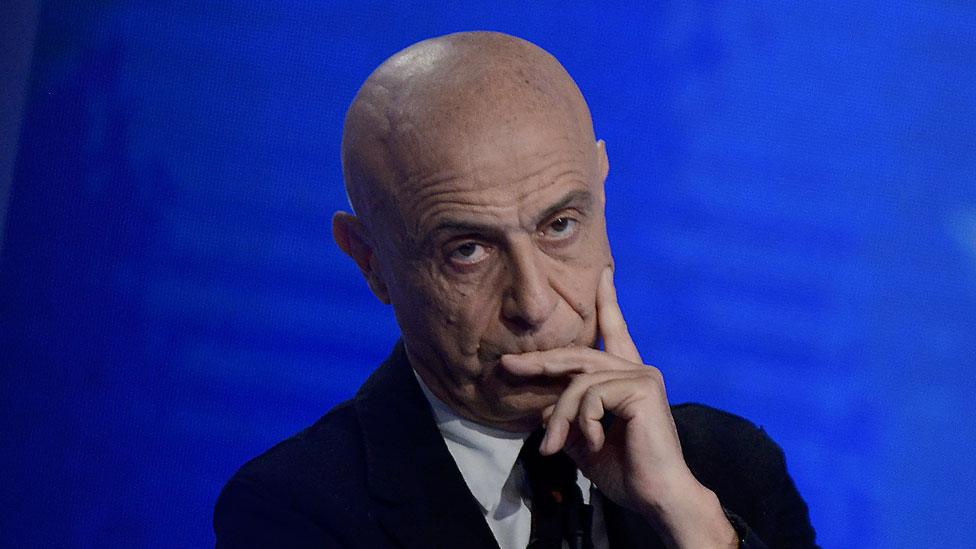Migrant crisis: Libya opposes EU plan for centres, says minister
- Published
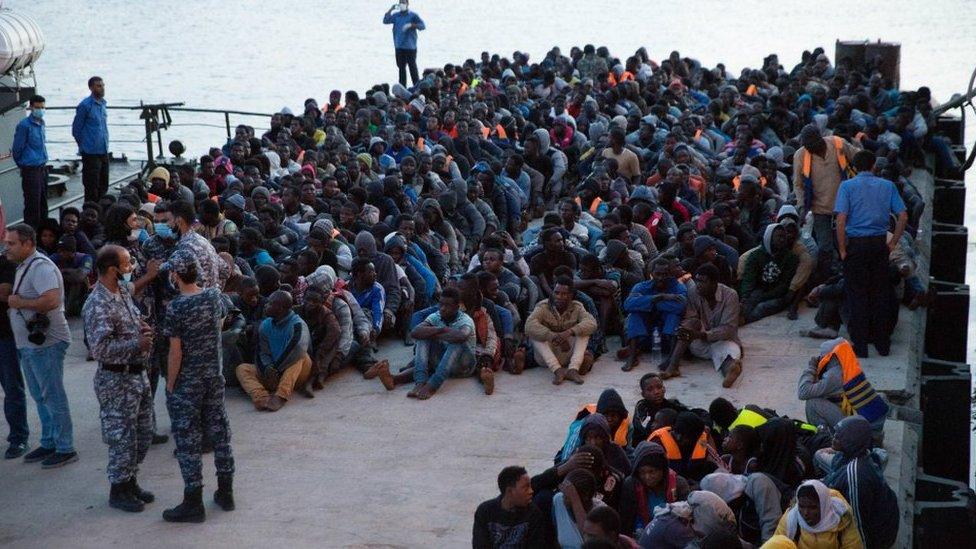
Many of those who risk the journey across the Mediterranean have to be rescued
Libya's foreign minister says his country opposes a European Union plan to set up assessment centres for migrants outside the EU.
The plan was drawn up by EU leaders in June as Italy called for more controls on migration.
But Mohamed al-Taher Siala told an Austrian newspaper that all North African countries reject the idea.
Instead, he said, Libya was working with its southern neighbours to reinforce their common borders.
Mr Siala is foreign minister for Libya's UN-backed Government of National Accord (GNA). The GNA is nominally in power in the capital, Tripoli, but rival political factions and militias occupy much of the rest of the country.
Libya has been mired in political chaos since Nato-backed forces overthrew long-serving ruler Col Muammar Gaddafi in 2011.
What is the EU plan?
In June, the EU proposed "regional disembarkation platforms", external in North Africa, where the UN and other agencies could screen those who have a genuine claim to asylum in Europe.
Those not eligible would be offered help to resettle in their home countries.
The plan was to break the business model of people-smuggling gangs by processing refugees and migrants outside the EU.
The move followed complaints from Italy, which has long been the main arrival point for boatloads of migrants from African countries fleeing poverty and violence.
According to the United Nations, more than 1,700 migrants have died trying to cross to Europe in 2018.
What has Libya said?
"All North African countries reject this proposal - Tunisia, Algeria, Morocco and Libya, as well," Mr Siala told the Austrian newspaper Die Presse.
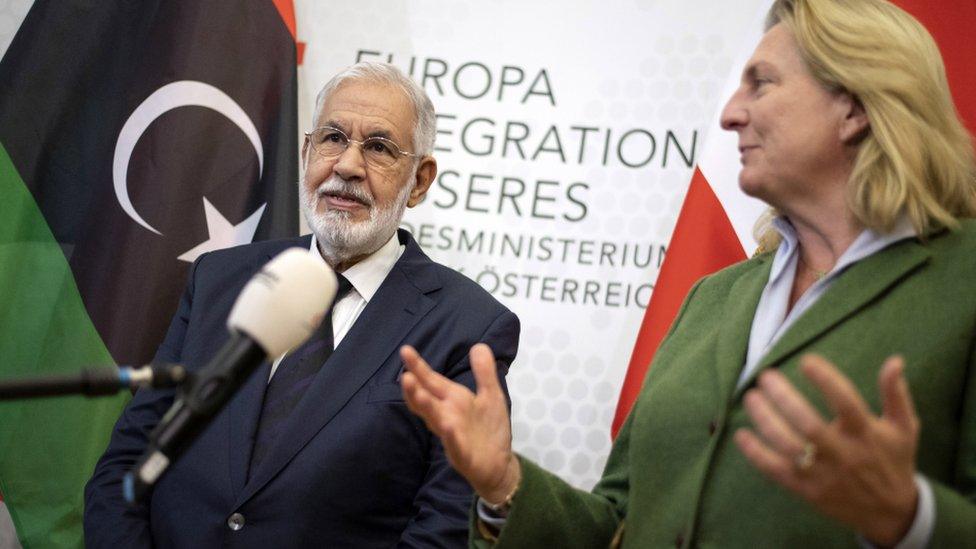
Libyan Foreign Minister Mohamed al-Taher Siala met his Austrian counterpart Karin Kneissl during a visit to Vienna
He estimated that about 30,000 illegal migrants were being detained in centres in Libya. He said his government was working with the EU to return migrants to their home countries, but added: "Unfortunately, some of these countries - many west African countries - refuse to take them back."
Mr Siala said Libya was trying to improve security along its southern border by striking agreements with Chad, Niger and Sudan.
He said the EU could also help protect that border by providing technical support such as patrol vehicles, "drones, helicopters and perhaps a few light weapons".
Meanwhile, EU and Arab League leaders have said they are to hold talks in Egypt in February, with illegal migration expected to be high on the agenda.
The League includes Egypt, Libya, Tunisia, Algeria and Morocco as well as countries in the Middle East and the Gulf.
Correspondents say part of the EU strategy is to boost development in sub-Saharan Africa to ease the conditions that often drive migration.
- Published7 July 2018
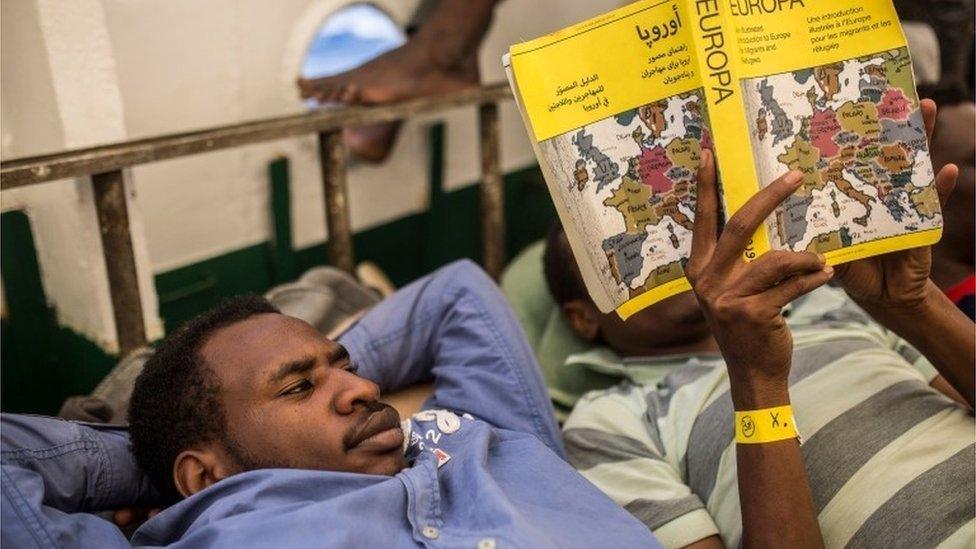
- Published15 June 2018
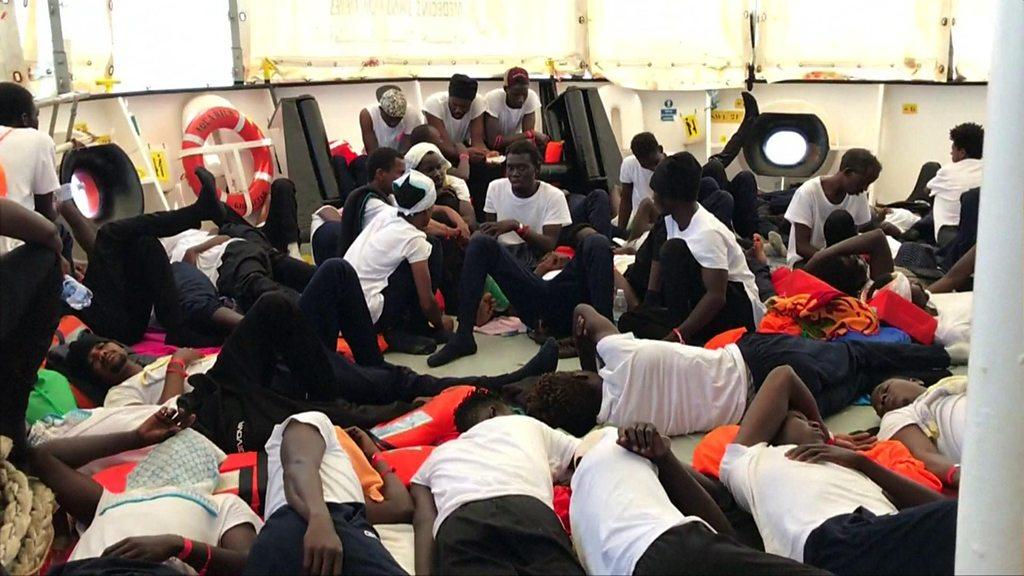
- Published14 September 2018
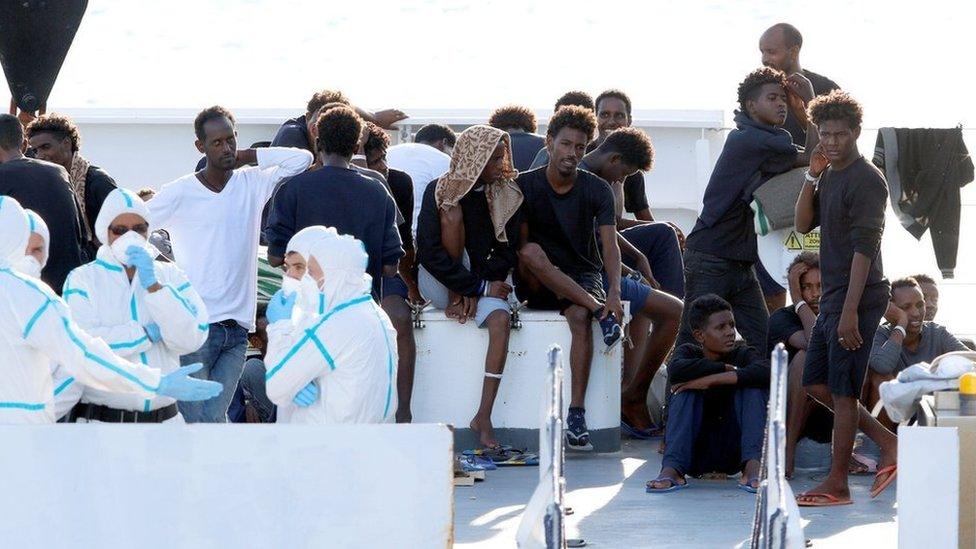
- Published20 September 2018
